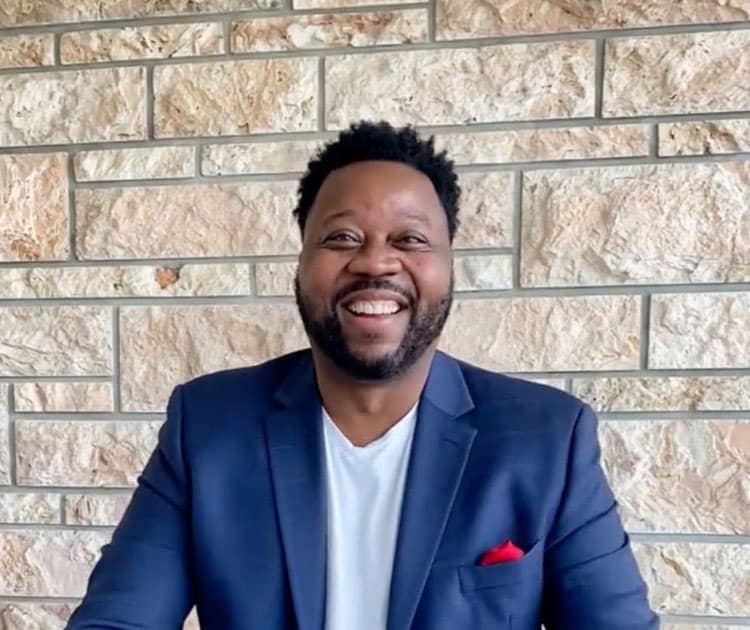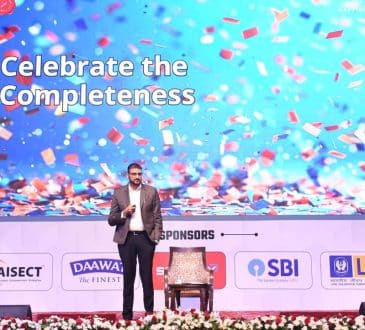Unrealistic Expectations: The Power of Education to Change a Life

When I talk to young people—and increasingly, to professionals—about the power of education, I often tell them that I once had what some might call unrealistic expectations. In fact, that’s exactly what was written in my state case file when I petitioned for my records after earning my first master’s degree. It read:
“Orvin has placed unrealistic expectations on education.”
The implication was clear—this young man, though well-meaning, is probably not capable of what he believes. It was as if to say, “He’s more academically challenged than he lets on, and his dreams are just too big for someone like him.”
But I stand here today not in defiance of that statement, but as proof that what some call unrealistic, others call vision.
The truth is, I wasn’t always the most focused kid. I wasn’t raised in a structured environment. I was educated in the same tough place I was raised, surrounded by instability and uncertainty. I wasn’t groomed for greatness. I didn’t have a roadmap or polished plan for college. But I had something just as powerful—I had dreams.
At a time when I was about to age out of the foster care system—after losing my mother to complications from drugs and alcohol when I was eight—I needed something that would give me structure, purpose, and a future. Education became that gateway.
When I began thinking about college during my senior year of high school, I knew it might be my only chance at stability. I needed more than textbooks—I needed healthcare, community, food, and a reason to believe in tomorrow. Education offered all of that. It provided structure where there had been chaos, and hope where there had been confusion.
I had been told most of my life that I was “a little slower” than other kids. Maybe I was. Maybe I wasn’t. But I knew how to work hard. And when I stepped onto a college campus in 1994, I carried with me not only the weight of my own ambition—but also the low expectations of a system that didn’t know what to do with a kid like me.
That time was also shaped by a national conversation on race—Rodney King, the riots, the growing debate over affirmative action. These weren’t just headlines; they were the backdrop of my college experience. On campus, I felt the tension. There was this quiet, sometimes not-so-quiet assumption that students like me were only there because of a policy—not because we earned it. As if we hadn’t worked. As if we didn’t belong.
Let me be clear: affirmative action may have opened a door, but it was effort that sustained me. Education didn’t hand me anything—I had to show up and work every day. What I learned—inside and outside the classroom—became the foundation for every opportunity I’ve since been entrusted to lead.
Education wasn’t a magic ticket. It was a long process—often uncomfortable and unfamiliar. And along the way, I had to overcome not only what others thought of me, but more importantly, what I had come to believe about myself.
That’s why I still remind young people—and leaders:
Don’t let someone else’s limited view of your potential define your future.
What they once called “unrealistic expectations” turned out to be one of the best things about me. I expected more. I expected better. Not just from the world—but from myself.
And now, at the top of the 7th inning of my leadership journey as an “accidental banker,” I realize that expectation—fueled by education—has driven me further than I could’ve imagined.
It’s easy to say being a foster kid-turned-CEO is compelling. But I don’t think that’s the most interesting part of my story. To me, the real story is this: I’m part of the less than 1% of children in the foster care system who complete college—and that same imagination people once dismissed is what now drives a $3 billion financial institution.
When I joined Midwest BankCentre, we were at $1.7 billion in assets. Today, we’re pushing $3 billion. That growth didn’t come from conventional thinking—it came from challenging assumptions. From looking at customer centricity through a Main Street lens. From digitally reimagining service. And most of all, from placing compassion at the center of a values-based business model.
It is the very imagination once deemed “unrealistic” that led us to believe that capital isn’t just for the few. It should be reasonably priced and widely accessible—for dreamers, for business builders, for communities too often overlooked.
And none of that would’ve been possible without the power that came through education.
If you’re a CEO or executive leader trying to take your business to the next level—use everything in your arsenal as fuel. Your experiences. Your setbacks. Your boldest ideas. The things people once told you were too ambitious or too idealistic—those might be the exact ingredients your organization needs to grow, transform, and lead differently.
Forget the artificial boundaries of “what’s realistic.”
That kind of thinking keeps companies playing small.
What if the next breakthrough in your business isn’t about doing more of what’s always worked, but about reimagining the rules entirely? That’s what education—and a posture of continuous learning—taught me. It won’t fix everything, but it will give you and your teams a fighting chance. And sometimes, that’s all you need to build momentum.
And to those in positions of power—in education, in business, in government—don’t be distracted by the noise. Don’t let the national discourse around cutting back or pulling away become the narrative you adopt internally. I’ve seen firsthand: it wasn’t a program that changed my life. It was ordinary people showing extraordinary compassion, matched with structure and vision.
That same compassion—now four degrees and four CEO roles later—is what I carry into the boardroom, into strategic planning sessions, and into how we build culture at Midwest BankCentre. Because I’ve learned that when leaders stop asking what’s realistic? and start asking what’s possible?—that’s where real transformation happens.
So today, as a foster care kid turned CEO of a nearly $3 billion financial institution, I offer you this:
There is power in being unrealistic.
Especially when it comes to the people and places everyone else has written off.
Especially when it comes to what your business can become.
So go ahead—keep being unrealistic. That might just be the smartest thing you do.
Written by Orvin Kimbrough.
Have you read?
The World’s Best Medical Schools.
The World’s Best Universities.
The World’s Best International High Schools.
The World’s Best Business Schools.
The World’s Best Fashion Schools.
The World’s Best Hospitality And Hotel Management Schools.
Bring the best of the CEOWORLD magazine's global journalism to audiences in the United States and around the world. - Add CEOWORLD magazine to your Google News feed.
Follow CEOWORLD magazine headlines on: Google News, LinkedIn, Twitter, and Facebook.
Copyright 2025 The CEOWORLD magazine. All rights reserved. This material (and any extract from it) must not be copied, redistributed or placed on any website, without CEOWORLD magazine' prior written consent. For media queries, please contact: info@ceoworld.biz








